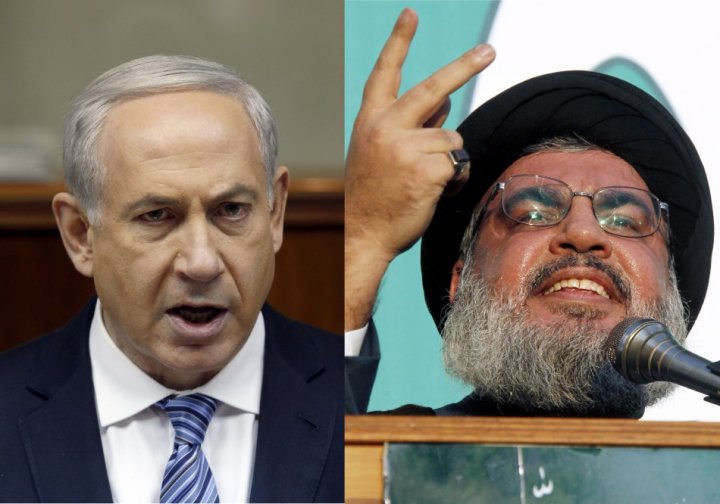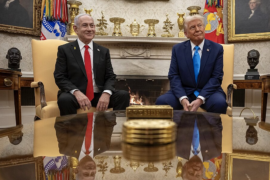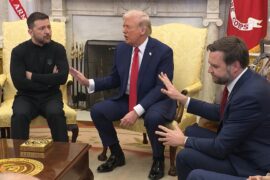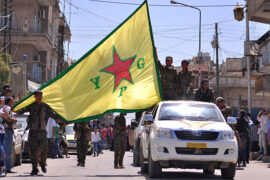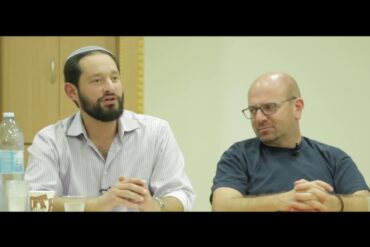Israeli Prime Minister Binyamin Netanyahu (Likud) responded Thursday afternoon to Hezbollah Secretary General Hassan Nasrallah’s threats from the day before.
“I heard the arrogant comments from Hezbollah,” Netanyahu said in a statement. “This is coming from the same man who said after the 2006 [war] that if he would have known what Israel’s response would be to the kidnapping of our three soldiers, he would have thought twice about it.”
“So today I suggest that he think not just twice but 20 times about it, because if he provokes us, he will get hit harder than he can even imagine.”
Nasrallah warned Israel on Wednesday to stop its attacks on Syria, implying that Hezbollah could potentially take military action. The warning came in response to an Israeli airstrike on Monday against a Syrian base in Latakia.
Syrian forces loyal to President Bashar al-Assad accidentally shot down a Russian reconnaissance plane during the strike, which they had mistaken for part of the Israeli attack team.
While the Russian defense ministry initially blamed Jerusalem, saying the Israeli jets used the Russian plane as cover, President Vladimir Putin took a softer tone when he later told reporters that the downing of the plane by Syrian air defenses was the result of a “chain of tragic accidental circumstances.”
Nasrallah disputed Israeli proclamations that the target of the strike was a weapons shipments bound for Hezbollah and accused Jerusalem of using that claim as an excuse to degrade Syria’s military capabilities.
“This is a lie,” he said. “Sometimes they do hit places that are connected to weapons that they know of but many of the attacks are not related to that at all.”
“Israel is working on preventing Syria from possessing missile capabilities.”
Israel has recently been increasing its strikes inside Syria, protesting the growing influence of Iran and Hezbollah in the war-torn country.
Hezbollah has been fighting alongside Assad’s forces in the Syrian civil war and, according to the Britain-based Syrian Observatory for Human Rights, roughly 1,665 Hezbollah fighters have so far been killed in Syria.
In a televised address on the eve of the Shiite commemoration of Ashura, Nasrallah vowed that Hezbollah would remain in Syria.
While responding to Nasrallah’s threats is understandable, Netanyahu should keep in mind that Hezbollah isn’t Hamas. Nasrallah’s fighters are Iranian-trained and ideologically motivated on a level beyond what the IDF has grown accustomed to dealing with in recent years. Defeating such a force requires Israeli fighters driven by an ideological power capable of rivaling Hezbollah’s.
Israel certainly has such soldiers but IDF Chief of Staff Gadi Eizenkot has been crusading to suppress their influence in the army since taking command in 2015, as part of a broader cultural conflict between Israel’s westernized ruling class and the more tribalist and traditional sectors of the public.
In addition to fighting a very public battle against the Bnei David military school in Eli that produces Israel’s most exemplary combat officers, Eizenkot has been working to culturally westernize the IDF through integrating women into combat units and taking the army’s educational corps out of the hands of those more deeply connected to Jewish values and identity.
In Eizenkot’s IDF, national-religious soldiers have been placed on the defensive and constantly forced to choose between values that needn’t conflict.
Israeli leaders must realize that defeating Hezbollah and Iran’s Revolutionary Guard Corps requires something greater than superior military technology. The IDF needs commanders and soldiers with an ideological vision, conviction and willingness to sacrifice capable of rivaling that of Israel’s foes. The soldiers and institutions Eizenkot has been irrationally seeking to marginalize are exactly the IDF’s most valuable assets on the battlefield.
Israel’s elites want the country to be an outpost of Western civilization in the Middle East and it’s understandable that they’re concerned about the nation they feel entitled to rule and shape transforming into a more authentic Jewish state organically at ease in the Semitic region. But Eizenkot’s replacement will have a crucial choice to make between continuing his predecessors crusade or strengthening Israel’s security through accepting and empowering the national-religious sector.
The two best known Israeli soldiers of recent years who to a certain extent epitomize the warring sides of the IDF’s internal struggle are Gilad Shalit and Roi Klein. Shalit surrendered to Hamas without a fight and became a weapon in their hands against the State of Israel. Klein saved the lives of his soldiers in Lebanon by throwing himself onto a grenade and declaring Sh’ma Yisrael as he died.
An Israeli military capable of squaring off against Hezbollah would require fewer Gilad Shalits and more Roi Kleins. Warriors such as Klein are bred in schools like Bnei David and a responsible military command would work to strengthen the relationship between such institutions and the army.

